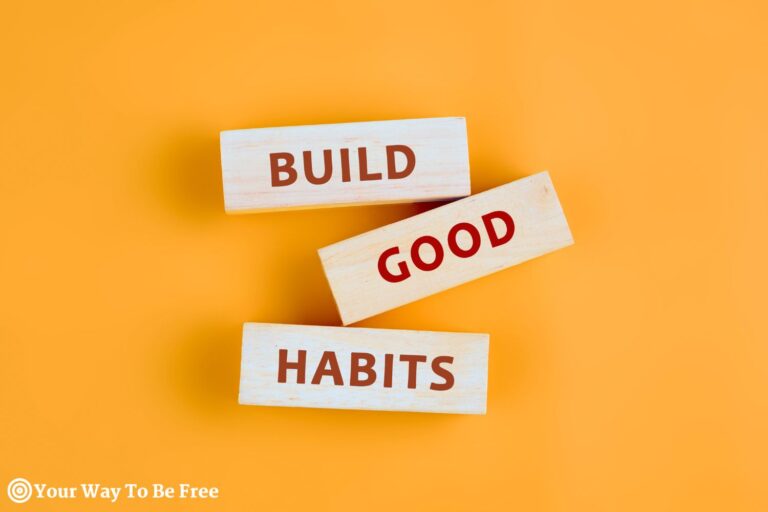In today’s fast-paced and materialistic world, we often find ourselves overwhelmed by the sheer volume of possessions, distractions, and responsibilities that fill our lives.
Minimalism has emerged as a powerful antidote to chaos, offering a more intentional, fulfilling way to live. At its core, minimalism is about simplifying your life to create space for personal growth, self-development, life freedom, and financial freedom. In this blog post, we’ll explore the transformative power of minimalism and offer practical steps to help you start your journey toward a more liberated life.
The Philosophy of Minimalism
Minimalism is more than just an aesthetic or a trend – it’s a philosophy and a way of life that emphasizes intentionality, simplicity, and the pursuit of what truly matters.
By questioning the relentless drive for more – more possessions, more accomplishments, more stimulation – minimalism invites us to step back and ask ourselves what we genuinely value and how we can create a life that aligns with those values.
The Benefits of Minimalism
1. Increased Focus and Clarity
By eliminating excess distractions and possessions, minimalism helps you cultivate a clearer mind and sharper focus. This clarity allows you to better understand your values, set meaningful goals, and make more intentional decisions.
2. Reduced Stress and Anxiety
A cluttered environment can contribute to feelings of stress and anxiety. Simplifying your surroundings and paring down your possessions can create a sense of calm, making it easier to manage everyday stressors and maintain a positive mental state.
3. Improved Financial Freedom
Minimalism encourages you to reconsider your relationship with material possessions and consumer culture. By prioritizing experiences and relationships over material goods, you can save money, reduce debt, increase your income, and work toward greater financial freedom.
4. Enhanced Personal Growth
With fewer distractions and more intentional living, minimalism creates the space for personal growth and self-development. As you learn to let go of what no longer serves you, you can invest time and energy in cultivating new skills, passions, and relationships.
5. Environmental Benefits
By consuming less, you are not only saving money but also reducing your environmental footprint. Minimalism promotes sustainable living by encouraging mindful consumption and discouraging overconsumption, waste, and the depletion of natural resources.
Practical Steps to Embrace Minimalism
1. Assess Your Priorities
Begin by reflecting on your core values and what truly matters to you. Identify areas of your life where excess and clutter are holding you back, and create a plan for simplifying those aspects.
2. Declutter Your Physical Space
Start by tackling one room or area at a time. Remove items that don’t serve a purpose, hold negative memories, or don’t align with your values. Donate, sell, or recycle these items, and only keep what truly brings value to your life.
3. Declutter Your Digital Space
In addition to your physical space, it’s essential to address digital clutter as well. Unsubscribe from unnecessary emails, delete unused apps, and limit your time spent on social media to create a more focused and intentional digital environment.
4. Establish Boundaries
Set limits on your consumption of material goods, time spent on social media, and other potential distractions. Establishing boundaries helps you stay focused on your priorities and avoid falling back into old habits.
5. Practice Mindfulness
Cultivate mindfulness through meditation, journaling, or other reflective practices. This will help you stay present in the moment and make more intentional decisions about how you spend your time, energy, and resources.
6. Embrace Experiences
Shift your focus from accumulating material possessions to seeking out meaningful experiences and relationships. Invest in personal growth, travel, and hobbies that align with your values and passions. Prioritize quality time with friends and family, and engage in activities that foster deep connections and personal growth.
7. Simplify Your Schedule
Evaluate your daily routine and commitments, and eliminate activities that don’t align with your values or contribute to your well-being. By simplifying your schedule, you can create more space for self-care, reflection, and the pursuit of your passions.
8. Develop Minimalist Habits
Incorporate minimalism into your daily life by adopting habits that support simplicity and intentionality. This might include implementing a morning routine, setting daily intentions, or practicing gratitude to maintain focus on what truly matters.
Overcoming Challenges on the Path to Minimalism
1. Navigating Societal Pressures
The journey toward minimalism may be met with resistance from friends, family, or society at large. Be prepared to face these challenges with patience and conviction, and remember that your journey is about creating a life that aligns with your values and priorities, not those of others.
2. Letting Go of Attachment
Releasing possessions and commitments can be emotionally challenging, especially if you’ve formed attachments to them. It’s essential to recognize that letting go is a natural part of the process and that your value and identity are not solely defined by what you own or what you do.
3. Balancing Minimalism with Practicality
Minimalism is not about deprivation or living without the essentials. Strike a balance between simplicity and practicality by carefully considering your unique needs and circumstances, and ensuring that your minimalist lifestyle remains sustainable and enjoyable.
Conclusion
The power of minimalism lies in its ability to help you break free from the constraints of a cluttered life and create space for growth, freedom, and self-development.
By embracing a more intentional and simplified lifestyle, you can rediscover what truly matters to you and make room for the experiences and relationships that bring you joy and fulfillment. Start your journey toward greater freedom today by taking the first steps toward minimalism and reap the rewards of a more liberated life.
Remember, minimalism is a personal journey, and there is no one-size-fits-all approach. Embrace the aspects of minimalism that resonate with you and adapt them to your unique needs and circumstances, creating a life that feels authentic, purposeful, and free.







